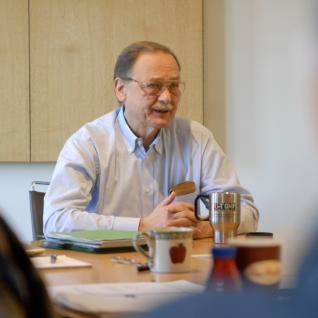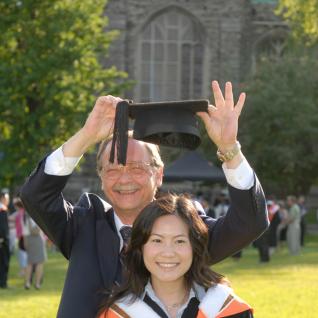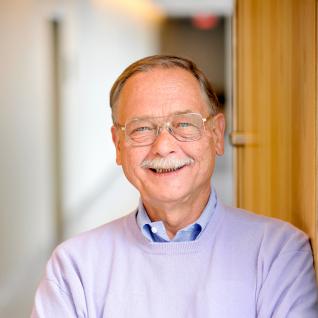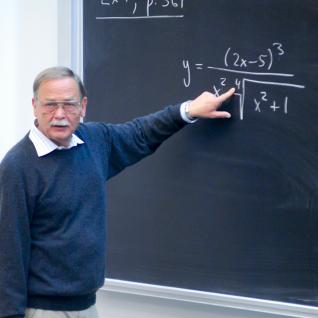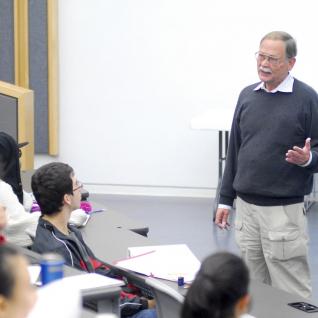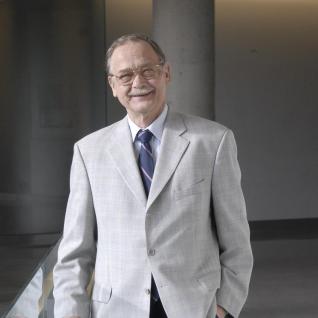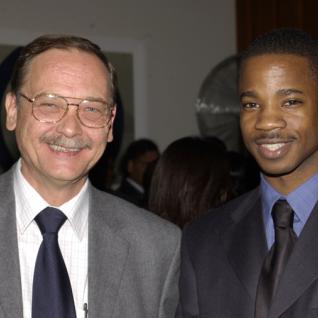Few are blessed with the gift of storytelling and fewer still possess a renowned ability for problem solving and arithmetical comprehension. Ragnar-Olaf Buchweitz possessed a combination of these traits, so rare as to be unforgettable to those who had the pleasure of seeing him teach.
Buchweitz, who died in November of 2017 at 65 years old, shared his passion for algebraic geometry, commutative algebra and singularities with his colleagues in the field at large, and at U of T, for 30 years. His ability to compare disparate fields of mathematics, and bridge gaps from one seemingly unrelated course to another, earned him the admiration of both his students and fellow academics.
What is considered by Buchweitz’s peers to be his greatest work “Maximal Cohen-Macaulay modules and Tate-cohomology over Gorenstein rings” spans more than 150 pages, and sadly, was never published. Despite its omission from his body of published works, his legacy will no less be remembered through the thousands of articles that cite his research. Students and professors outside of the mathematics department also remember him as a dedicated vice-principal (academic) and dean at U of T Scarborough.
At the celebration of life ceremony, held at Miller Lash House on Friday, Jan. 26, U of T Scarborough Principal Bruce Kidd recalled first meeting Buchweitz at an assembly with the Ministry of Education where he gave an impassioned speech on improving curriculums for university-bound students.
“He began by tearing strips off of the high schools and ministry for its irregular and inconsistent preparation of students, with a long litany of examples. It was one of the fiercest speeches I’d ever seen,” Principal Kidd said. “But he didn’t stop there, he shared a remarkably prepared and outlined plan as to how the boards and ministry could achieve what he suggested and offered his support. That was classic Ragnar.”
Buchweitz was born in the small Prussian town of Neuruppin, Germany on March 18, 1952. He enrolled at the University of Hannover in 1969 and earned his PhD six years later. After earning his habilitation in Hannover, he started at the University of Toronto in 1987 where he taught ever since.
Throughout his life, and after his passing, Buchweitz was revered for his contributions to mathematics not only in Toronto but in his home country as well. In 2010, Buchweitz received the Humboldt Research Award from his fellow researchers in Germany.
The Alexander von Humboldt Foundation grants the prize, worth 60,000 euros ($93,000 CAD), as a lifetime achievement award to experts who have made noteworthy advancements in their field. The foundation considers researchers from around the world for the award, but they can only be formally nominated on the recommendation of established German academics. For this reason, it is considered to be one of the highest professional honours awarded in Germany, with the prize bestowed upon the recipient at a ceremony in Berlin’s Schloss Charlottenberg Palace.
Even through his lengthy and distinguished career Buchweitz never lost the youthful sense of wonder he felt when answering questions that only he could.
“To quote a mathematician friend of mine, ‘I like to solve problems no one else knows the answers to!’ It is incredibly satisfying to lift the veil from the unknown – if only a little bit – and to come up with an answer to age-old problems or riddles,” he said.
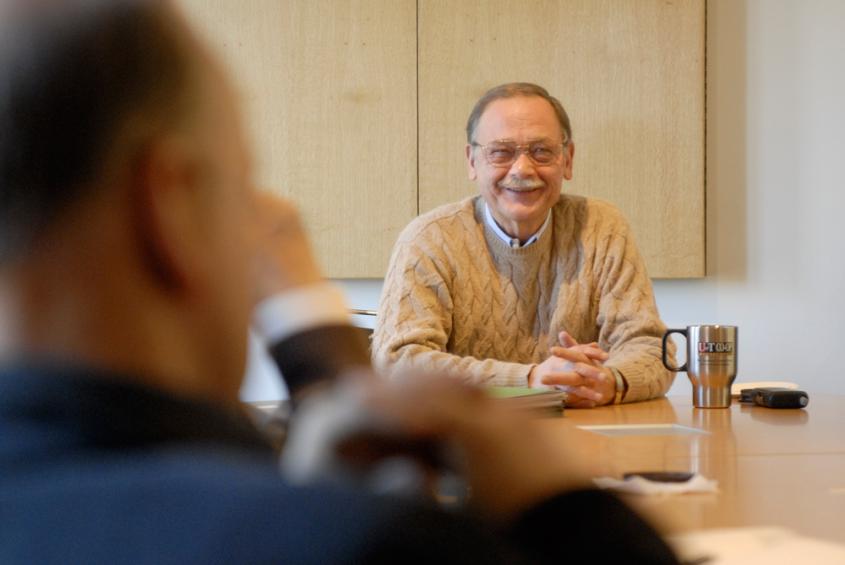
Buchweitz’s wife Ruth also spoke to his love for his field of research and his job when she addressed a gathering of his students, peers, and family at the celebration of life.
“As I learned this morning, today is the international day of fun at work. Ragnar did not need a special day like this, whether it was for his lessons or for his students, he always left the house with enthusiasm,” she said.
“Sometimes there were frustrating days when he’d be working on a problem, with his head making almost as much smoke as his cigarillos,” she added. “Finally he’d come to me with sparkling eyes and a smile on his face which told me before he spoke a single word, ‘I did it.’”
In honour of Buchweitz’s lifelong dedication to academia Ruth announced that another memorial will be hosted by his colleagues in Germany. That ceremony is expected to take place in the spring, in observance of Buchweitz’s birthday.

